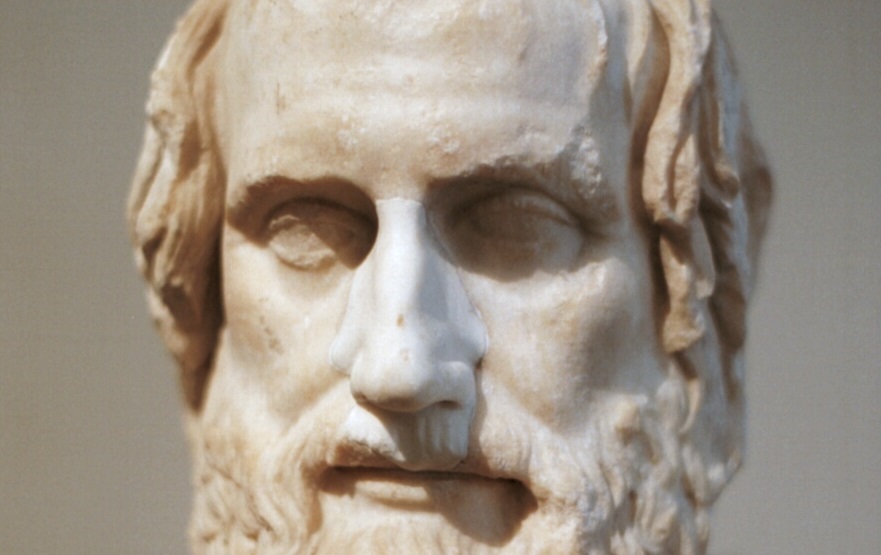Euripides was a tragedian of classical Athens. Along with Aeschylus and Sophocles, he is one of the three ancient Greek tragedians for whom a significant number of plays have survived. Some ancient scholars attributed 95 plays to him but, according to the Suda, it was 92 at most. Take a look below for 30 more weird and interesting facts about Euripides.
1. More of his plays have survived intact than those of Aeschylus and Sophocles together, partly because his popularity grew as theirs decline.
2. In the Hellenistic Age, he became a cornerstone of ancient literary education, along with Homer, Demosthenes and Menander.
3. Euripides is identified with theatrical innovations that have profoundly influenced drama down to modern times, especially in the representation of traditional, mythical heroes as ordinary people in extraordinary circumstances.
4. Unique among writer of Ancient Athens, Euripides demonstrated sympathy towards the underrepresented members of society.
5. His male contemporaries were frequently shocked by the “heresies” he put into the mouths of characters.
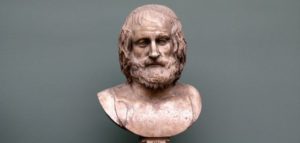
6. His contemporaries associated him with Socrates as a leader of decadent intellectualism, both of them being frequently lampooned by comic poets such as Aristophanes.
7. Euripides was born in about 480 BC on Salamis Island to Mnesarchus, his father, a retailer, and Cleito, his mother.
8. He was prophesied by an oracle that he would win athletic championship, and his father insisted that he train in athletics.
9. His education included philosophy and painting.
10. Euripides married twice and had three sons with one of his wives.
11. Both of his marriages ended and Euripides chose to live like a recluse in a cave, where he built a home for himself and wrote.
12. At the end of his life, he lived in the “rustic court” in Macedonia.
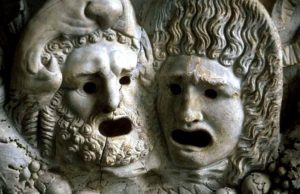
13. During his lifetime, Euripides wrote about 90 plays, even though only 19 manuscripts survived.
14. During his lifetime, major playwrights competed in a dramatic festival in Athens held to honor the god Dionysus. His first entry was in the festival in 455, but he didn’t win his first competition until 441. In total, he won four of these competitions.
15. Euripides most well known tragedies include “Alcestis”, “Hippolytus” , “Medea” ad “The Bacchae.”
16. His plays often include complex, strong female characters who were avengers despite being victimized in some way.
17. Euripides enjoyed writing about the darker side of people, including plots with insanity, revenge and suffering.
18. His plays were preserved over the years because of his high Greek literature status.
19. His plays have been recopied many times over the centuries to preserve them.
20. At the time when Euripides lived and wrote his works, plays didn’t have the formatting they have today. They were written much like prose without stage directions, no notation of change of speaker, or even punctuation consistency.
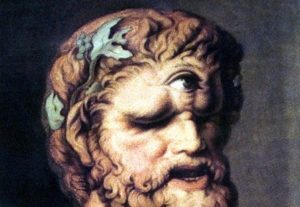
21. Because of ancient records, the chronological date of Euripides plays can be approximated.
22. In festival competitions of the time, several of Euripides’ plays placed high. “Hippolytus”, “Bacchae” and “Iphigenia at Aulis” won first place. “The Trojan Women”, and “Alcestis” placed second. “Madea” placed third.
23. Many of his plays have been translated, and adapted and are still being produced around the world in theaters today.
24. Poets Elizabeth Barret Browning and Robert Browning admired Euripides and wrote about him during their own careers.
25. Toward the end of his life, Euripides was invited to live in Macedonia by King Archelaus.
26. He served for a short time as both dancer and torch-bearer at the rites of Apollo Zosterius.
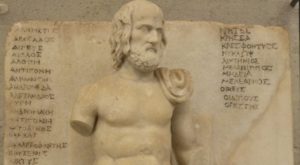
27. His first play was staged 13 years after Sophocles’ debut and only three years after Aeschylus’ masterpiece.
28. Much of his life and his whole career coincided with the struggle between Athens and Sparta for hegemony in Greece, but he didn’t live to see the final defeat of his city.
29. It’s said that Euripides died in Macedonia after being attacked by the Molossian hounds of King Archelaus and that his cenotaph near Piraeus was struck by lightning.
30. Tragic poets were often mocked by comic poets during the dramatic festivals Dionysia and Lenaia, and Euripides was mocked more than most.

